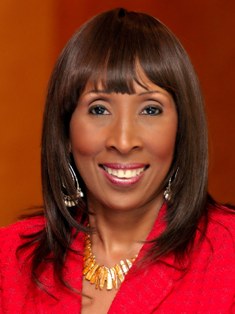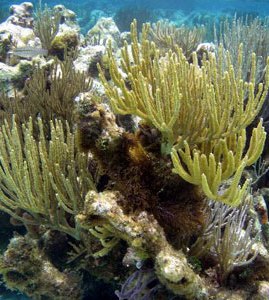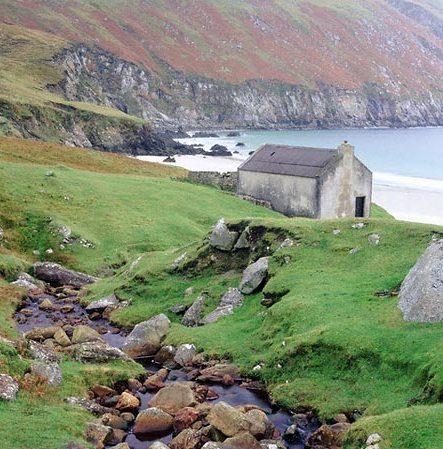Archive for February 17th, 2010
Teaming with Kenya may undermine Cayman’s image
(CNS): A number of concerns have already been raised in the business community that doing business with Kenya may not help with the Cayman Islands own image when it comes to global perceptions. Following the recent visit by the vice president of the east African nation, Stephen Kalonzo Musyoka, to Cayman and his invitation to the local Chamber of Commerce to send a delegation to Nairobi, some have questioned the wisdom of exploring trade with the country given that Kenya is considered one of the world’s most corrupt nations. (Photo courtesy of News 27)
While there are certainly some countries that are more corrupt than Kenya, it currently rates around 146th in the latest anti-corruption league table of the 180 countries surveyed. Research compiled by transparency.org, the World Bank, IMF, Freedom House and others all points to considerable problems for the country in both the public and private arenas.
Aside from the usual reasons why lesser developed nations are vulnerable to corruption, Kenya has its own special problems. Being a relatively stable nation bordering on some of the world’s most unstable countries, such as Somalia and Ethiopia and close neighbours with Congo, Kenya is even more susceptible because ofthe number of non governmental organisations, aid agencies, international firms and global corporations that use Nairobi, the country’s capital, as a base from which to direct their eastern and central African operations.
Musyoka came to the Cayman Islands last week as a guest of Pastor Al Ebanks, of Agape Family Life Centre, who met the African politician on a missionary trip to Kenya. During his visit Musyoka met not only with his fellow nationals living here in Cayman but with the governor, the speaker of the house and the premier. He also met with members from the Chamber of commerce.
“We met with the Chamber President and invited them to Kenya for a trade delegation in which they will explore the opportunities that will be brought about by the start of the East African community on July 1 this year,” Musyoka told the local press at a briefing held on his behalf by Pastor Ebanks. “Although Kenya and Cayman Islands are far apart, in the age of globalisation let distance not be prohibitive … businesses today know no borders,” he said.
The Kenyan VP also announced that he is going to meet with the Kenya Association of Manufacturers, the Kenya Private Sector Alliance and the Kenya Chamber of Commerce to explore avenues in which Kenyans should invest in the Cayman Islands.
A number of people in the local business community have raised concerns, however, that trading with a country such as Kenya may fuelthe long standing international criticisms about Cayman’s status as a haven for less than legitimate earnings of the world’s corrupt governments.
While he was in Cayman, Musyoka highlighted some of problems his country and the east African region faced when he explained that Islamic insurgents had immigrated to Yemen now and were on route to neighbouring Somalia. He called on the world to notice the Somalian question to find solutions towards a stable government.
As a result of the instability from surrounding nations, Kenya provides a home to around 250,000 refugees and has recently had its own internally displaced persons problem as a result of the unrest that spread through the country in 2007 and early 2008. Musyoka is part of a Grand Coalition Government that was sworn in on April 17, 2008 with Mwai Kibaki from the Party of National Unity (PNU) as President and Raila Odinga from the Orange Democratic Party (ODM) as Prime Minister. The coalition was established under a National Accord and Reconciliation Agreement with an equally shared portfolio balance between PNU and ODM following a political crisis and violence that followed the announcement of the results of the presidential, parliamentary and local government elections of December 28, 2007.
Musyoko is now part of the Orange Democratic Movement but he was formerly part of the Ruling Party KANU and served under the country’s last dictator, President Daniel arap Moi, who retired after 24 years in the position, finally ushering in multi-party democracy.

US journalist to star at women’s business conference
 (CNS): Sheila Brooks, Emmy-award winning journalist, entrepreneur, and dedicated advocate for women’s issues and small businesses will be the key note speaker at the 4th annual Inspiring Women Entrepreneurs conference scheduled for March 11th at the Westin. The event, organized by the Cayman Islands Department of Commerce and Investment (formerly CIIB), is held each year as a part of Honouring Women Month to celebrate the advancements of women in business and give them a platform to share valuable experiences and best practices.
(CNS): Sheila Brooks, Emmy-award winning journalist, entrepreneur, and dedicated advocate for women’s issues and small businesses will be the key note speaker at the 4th annual Inspiring Women Entrepreneurs conference scheduled for March 11th at the Westin. The event, organized by the Cayman Islands Department of Commerce and Investment (formerly CIIB), is held each year as a part of Honouring Women Month to celebrate the advancements of women in business and give them a platform to share valuable experiences and best practices.
Brooks has been specifically asked to lend her insights into uncovering the blocks to business growth and cultivating a spirit of innovation even in lean economic times.
Brooks is founder, president and CEO of SRB Communications, LLC, a full-service media and communications agency and post-production facility in Washington, DC. Prior to starting her company in 1990, Brooks built a distinguished television career as a news director, reporter, anchor, and documentary producer at CBS, NBC, PBS and Fox owned-and operated and affiliate TV stations across the country.
She has won many awards for journalism excellence and entrepreneurship, and she is a nationally recognized speaker on women and business issues in the US. She serves as National Spokesperson for "Accelerating the Growth of Businesses Owned by Women of Color" Research Project, and is an alumna of the Leadership Greater Washington program, the Minority Business Executive Programs at Northwestern University’s Kellogg School of Business and Dartmouth College’s Amos Tuck School of Business

Reef exhibt comes to Cayman
 (CNS): A specialist exhibition which highlights the many perils faced by Caribbean coral reefs is currently on show at George Town Public Library. The exhibit was brought to Cayman by staff from the Department of the Environment as a means of drawing attention to the challenges facing local reefs as they struggle to survive.
(CNS): A specialist exhibition which highlights the many perils faced by Caribbean coral reefs is currently on show at George Town Public Library. The exhibit was brought to Cayman by staff from the Department of the Environment as a means of drawing attention to the challenges facing local reefs as they struggle to survive.
The DoE said it hoped that the exhibit will act as a catalyst for community discussion and action related to Cayman’s coral reefs.
“As the title of this exhibit explains, those of us who live in the area of the wider Caribbean are connected by a precious and fragile natural resource, our coral reefs,” a DoE spokesperson said.
“Just as we differ as peoples, cultures, societies, and economies, our coral reefs also differ as to types, habitats and health. Yet all are entwined and related by the ocean currents, upon which ride the offspring of reef organisms that might enhance the future growth and continuity of our coral reefs – along with the pathogens, pollutants, invasive organisms and trash that we humans add, which imperil their survival.”
The exhibit will be at the George Town Public Library until March 12, 2010. Viewing is 10am-5pm from Monday through Friday and 10am -2pm on Saturday. The viewing is free and all are welcomed. For additional information please contact the Department of Environment at doe@gov.ky .

Change in weather clears way for Travers’ debut
 (CNS): Having made history in the Cayman Islands as the country’s first ever winter Olympian by qualifying for the giant slalom, Dow Travers is only days away from his debut in the world’s most famous winter sports event. Despite a long-term ankle injury and training thwarted by the mild weather in Whistler, Travers says he is raring to go. Monday was the first day of a resumed programme thanks to overnight colder weather and the young skier finally got some training on the mountain where he will compete. “I’m feeling good,” said an upbeat Travers.
(CNS): Having made history in the Cayman Islands as the country’s first ever winter Olympian by qualifying for the giant slalom, Dow Travers is only days away from his debut in the world’s most famous winter sports event. Despite a long-term ankle injury and training thwarted by the mild weather in Whistler, Travers says he is raring to go. Monday was the first day of a resumed programme thanks to overnight colder weather and the young skier finally got some training on the mountain where he will compete. “I’m feeling good,” said an upbeat Travers.
“We’re just doing our last few days of training. Obviously, we were a little bit bogged down by the weather but now we’re beginning to get into the rhythm of it just coming up into the competition," he said. “The ankle is a little sore but we’re making sure we’re doing lots of physio every day to ensure there are no ill effects from it. I just hope to do the best I can and make Cayman proud. The majority of Caymanians seem to be pretty excited at having someone in the Olympics.”
Travers also said that it was greatto have Cayman’s premier, MacKeeva Bush, and the sports minster, Mark Scotland, at the opening ceremony. “I didn’t actually see Mr Bush but did have lunch with Mark the other day,” Travers added.
Travers’ coach, Gene Bridgewater, also noted that Travers’ ankle was bearing up. “We’re doing physio every afternoon to ensure there’s no problem with swelling,” he said.
The weather has presented a frustrating time for Travers and his coach, waiting for a decent hard, icy surface to train on, and David Carmichael, the Chef de Mission for the Cayman Islands Olympic Committee, said it was too soft for Cayman’s skier to train on when the team first arrived.
“But now it’s snowed the last couple of days, visibility is back after all the fog; the temperature has dropped so Dow is able to go on the hill. Everybody is struggling to get on the slopes and get some hill time and get used to the conditions. It’s icy and granular and all over the place very soft snow,” he explained. “Dow is in good shape. He’s been doing a lot of dryland training, working through his kit, ensuring everything’s alright. His coach, Gene Bridgewater, is happy. They’ve made connections with other teams and jumped in and made training runs with them.”
Travers’ coach, who is an American originally from Boulder, Colorado, but who now lives in Aspen, wears the Cayman Olympic gear with pride and said he is getting lots of double takes.
“Where’s the Cayman Islands, they ask,” laughs Bridgewater. “Also, Cayman pins are a very hot commodity.” Bridgewater had the pleasure of visiting Cayman once when his sister was married there in Smith Cove.
Travers competes down the slopes of Whistler, 80 miles north of Vancouver, on Sunday in the Giant Slalom when the whole island will be rooting for the 22-year-old Brown University student. Although he won’t medal, qualifying is a huge and historic achievement, just to be competing against skiers who were born on slopes and not a flat Caribbean island. Travers has been competing seriously since he was 14, and on Sunday the culmination of all that dedication will nicely dovetail in the ultimate challenge in the supreme tournament against the world’s best.
Source: Ron Shillingford

Tax exiles not exiled enough
 (Daily Telegraph): The Appeal Court rejected the case of Robert Gaines-Cooper, a millionaire who has claimed non-resident status based on his ownership of an estate in the Seychelles. Non-residents are often British-born individuals who persuade the authorities they have largely left the country and are therefore able legally to avoid many British taxes. Accountants and tax experts have long assumed that as long as someone spent no more than 91 days a year in Britain, they could claim non-resident status and tax benefits. But the Appeal Court judges ruled that because Gaines-Cooper retained significant personal ties to Britain, HM Customs and Revenue was justified in denying him non-resident tax benefits.
(Daily Telegraph): The Appeal Court rejected the case of Robert Gaines-Cooper, a millionaire who has claimed non-resident status based on his ownership of an estate in the Seychelles. Non-residents are often British-born individuals who persuade the authorities they have largely left the country and are therefore able legally to avoid many British taxes. Accountants and tax experts have long assumed that as long as someone spent no more than 91 days a year in Britain, they could claim non-resident status and tax benefits. But the Appeal Court judges ruled that because Gaines-Cooper retained significant personal ties to Britain, HM Customs and Revenue was justified in denying him non-resident tax benefits.
Accountants said the Court of Appeal’s ruling could have implications for all British tax exiles. Some non-residents claim that status by frequently flying into Britain from a base in Monaco, while their families remain here permanently. Mike Warburton, a senior tax partner at Grant Thornton, an accountancy firm, said the court ruling had “moved the goalposts” for rich tax exiles. He said: “Thousands of people who thought they were fulfilling the rules on tax exiles may now find that they have not succeeded in their plans because they have kept connections with the UK. The goalposts have been moved. Everyone thought they knew where they stood.”

Court runs out of jurors in firearms trial
 (CNS): One of the many challenges facing the Cayman Islands criminal justice system was brought in to sharp focus on Tuesday morning when the Grand Court ran out of jurors from this session’s jury pool before it could make a seven person panel for a firearms trial. A combination of challenges from both the defence team of attorneys and the crown, as well as the jurors’ knowledge of the four defendants and witnesses involved in the particular case, left the court staff trawling the streets of George Town to find enough people to sit for the trial of Keith Orrett, Brian Borden, Bjorn Ebanks and Keith Montaque.
(CNS): One of the many challenges facing the Cayman Islands criminal justice system was brought in to sharp focus on Tuesday morning when the Grand Court ran out of jurors from this session’s jury pool before it could make a seven person panel for a firearms trial. A combination of challenges from both the defence team of attorneys and the crown, as well as the jurors’ knowledge of the four defendants and witnesses involved in the particular case, left the court staff trawling the streets of George Town to find enough people to sit for the trial of Keith Orrett, Brian Borden, Bjorn Ebanks and Keith Montaque.
The four men are all charged with possession of unlicensed firearms after police discovered the weapons in a house in West Bay in 2008. Their jury trial was due to start on Tuesday morning. However, as the court began the process of panelling a seven person jury from the current pool of around fifty people, the entire panel was dismissed after only four people were sworn to serve.
With the four defence attorneys having five challenges each, the prosecution with twenty, plus the fact that so many of the jurors were well acquainted with the defendants or the witnesses, juror after juror was dismissed. With only four people on the panel and the pool exhausted, Justice Charles Quin, who is presiding over the trial, ordered the clerk of court to take to the streets of George Town and find people to serve.
An additional juror who is summoned on the spot to make up for a deficiency in a jury panel is known as a talesman, and on this occasion the court needed to find three. In the first attempt nine people were found in and around the George Town area who met the criteria required for jury service — being on the electoral roll and not having any criminal prosecutions. However, only two women were able to serve from that extra pool, forcing the clerk to hit the streets once again for the final member. After another eight people were rounded up, one man was finally selected and sworn in to make up the necessary seven member jury for a trial of this type of offence.
Each and every Grand Court session the justice system faces a number of problems with jurors, not just because they are afraid to serve because of potential threats but because they are often too familiar with the defendants or the witnesses. Combined with a relatively small electoral roll of just over 15,000, many of whom are still not eligible to serve on a jury due to their type of employment, age, criminal record, or other circumstances, and who are difficult to locate as the addresses have not been updated since Hurricane Ivan, the courts face increasing problems swearing in jurors who can serve impartially.
Although the court bailiff selects around 120 people for the jury panel for each court session from the most recent edition of the register of voters, if the details are not correct it is not always possible for the bailiff to find the people listed. Anyone who has served on any of the last six panels will also be excluded from the new list, and as it is a random procedure designed to ensure impartiality and an even distribution to as many citizens as possible, many people who do not meet the criteria or who have a legitimate reason to be excluded will wind up on the list.
With criminal cases increasing in the Grand Court year on year, the goal of securing enough impartial men and women to ensure the basic human right of any individual charge with a serious crime is becoming even more problematic.

Ireland gains another Cayman Islands offshore firm
 (CNS): An international insurance firm has joined the list of offshore companies moving from the Cayman Islands to other jurisdictions. United America Indemnity Ltd is moving to Ireland, the firm announced yesterday. Changing its plans to move from Cayman to Switzerland, it said it has now determined that incorporating in Ireland is in the best interests of the company and its shareholders. INDM stated that Ireland offers an attractive business environment, a highly educated and motivated professional workforce, a comprehensible legal system grounded in Common Law, a sophisticated regulatory environment, and an extensive global network of international treaties.
(CNS): An international insurance firm has joined the list of offshore companies moving from the Cayman Islands to other jurisdictions. United America Indemnity Ltd is moving to Ireland, the firm announced yesterday. Changing its plans to move from Cayman to Switzerland, it said it has now determined that incorporating in Ireland is in the best interests of the company and its shareholders. INDM stated that Ireland offers an attractive business environment, a highly educated and motivated professional workforce, a comprehensible legal system grounded in Common Law, a sophisticated regulatory environment, and an extensive global network of international treaties.
The firm said that full details of the move, including the associated benefits and risks, would be provided in the Company’s proxy statement, which was filed on 16 February in preliminary form with the SEC, and will mail in definitive form to shareholders as soon as it is available.
United America Indemnity, Ltd (INDM) through its several direct and indirect wholly owned subsidiary insurance and reinsurance companies is a national and international provider of excess and surplus lines and specialty property and casualty insurance and reinsurance, both on an admitted and non-admitted basis.
No sign of Mac’s task force
(CNS): The premier has called on the governor and the police commissioner once again to bring in a task force to deal with crime, but there is no indication that it is likely to happen anytime soon. The call comes in the wake of the fatal shooting of four-year-old Jeremiah Barnes on Monday night, just yards, as the crow flies, from McKeeva Bush’s own home in West Bay. He said his government had provided everything the police had asked for, and although the elected government does not control the police, he was confident the commissioner and the governor would heed the call. Bush sent his condolences to the family of Jeremiah from Whistler, where he is attending the winter Olympics.
A few months ago Bush had first pointed to the fact that the Cayman Islands can no longer describe itself as crime free and has been pressing for a task force. However, it seems so far his request has gone unheeded and there was still no sign from the Governor Duncan Taylor or Commissioner David Baines at yesterday’s press briefing that there are any plans to bring in an outside force.
Taylor said on Tuesday that there would be an emergency Cabinet meeting on Friday to shape proposed legislation to assist the police in terms of bringing convictions, such as the introduction of anonymous witnesses, judge alone trials and removing a suspect’s fundamental right to silence, which has been seen in the UK, but there was no mention of a task force.
Baines said the RCIPS would be increasing patrols, but did not outline any plans to engage an overseas force to deal with the current and immediate need to control the violence, which has been increasing as a result of gang feuds.
However, Bush said in his statement from Whistler thathe had called publicly and privately for the specialist team on several occasions. “With the new commissioner in place and a new governor, I feel confident that this will be addressed with urgency,” said the premier.
“The country has had very recent changes with the appointment of a new governor and the current commissioner also needs some time to deal effectively with this issue. The government is working together with them and the wider community to ensure that appropriate short term and long term strategies are developed and put in place urgently to address the rise in serious crimes in this country,” added Bush. “This government has provided everything that we have been asked for in terms of resources and we will continue to do so.”
Despite not having control over the police constitutionallyg he said the UDP administration would continue to pursue long term holistic strategies. “We will also be giving advice through the National Security Council and in other ways. I am confident that the rule of law will prevail, not mob rule,” he added. The governor confirmed on Tuesday that the National Security Council would hold its first meeting in the next two weeks but that it was not expected to be able to resolve the immediate problems.
He also called on the wider community to do its part in the fight against the rise in serious crimes, saying that everyone could do their part by cooperating with the police. “Let’s not make it any easier for criminal elements to operate within our community by being silent. There are programmes that will allow you to give information on an anonymous basis to the authorities. If you see something happening in your community, tell someone, we all have an important role to play,” said the premier.